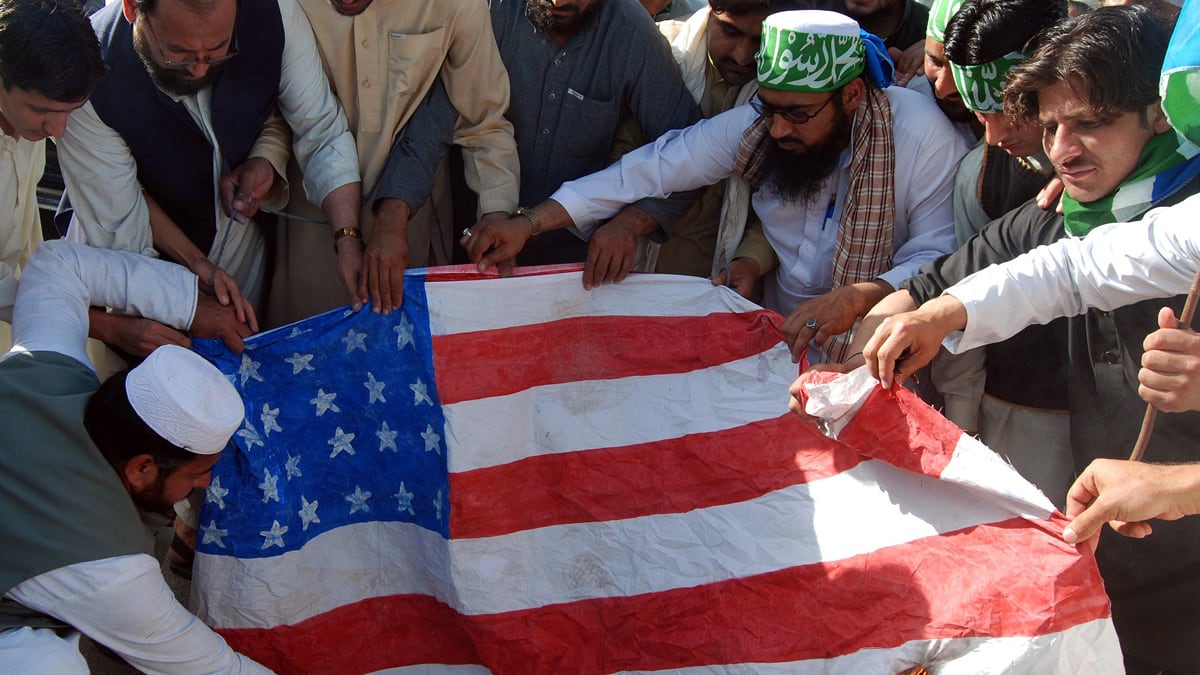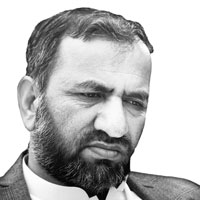Pakistan’s often difficult relations with America are finally beginning to thaw. Four and a half months have passed since Islamabad froze its ties with Washington and shut down the crucial NATO supply route into Afghanistan. Pakistanis were infuriated by an American airstrike last November that killed 24 Pakistani soldiers on the Afghan border, and their anger didn’t end when a lengthy U.S. investigation of the incident concluded that mistakes were made by both sides.
Now, after nearly a month of rancorous debate, the country’s parliamentarians have issued a tough new set of recommendations for Islamabad’s future dealings with the Americans. The guidelines pointedly call not only for the cessation of U.S. drone attacks in Pakistan’s Federally Administered Tribal Area but also for an end to any “overt or covert operations” inside Pakistan —-an obvious reference to CIA operations against al Qaeda and its militant friends. “Today’s resolution will enrich your respect and dignity,” Prime Minister Yousaf Raza Gilani told Parliament. “I assure you that we will get these enforced in letter and spirit.”
But the important thing is this: the legislators did not make those rather unenforceable demands (Washington clearly has no plans to discontinue using the drones to hunt down al Qaeda operatives and other anti-U.S. militants) a precondition for reopening the supply corridor. The parliamentary move gives a relatively free hand to President Asif Ali Zardari, and some political analysts are predicting that Pakistani-U.S. relations might get back on track at last.
Washington certainly hopes they’re right. Dealings between the two countries have been worse than tense ever since early last year, when CIA contractor Raymond Davis shot two Pakistanis dead on a street in the eastern city of Lahore, and then U.S. Navy SEALs took out Osama bin Laden in May. Now America is looking for something far more than just to reopen Pakistan’s strategic Khyber Pass supply th corridor into Afghanistan—although the roundabout alternative routerough Central Asia has been a terribly expensive detour. Beyond that, however, Washington desperately needs Pakistan’s help in getting the Taliban to the negotiating table and arranging an honorable disengagement from Afghanistan. “We pretty much want to go where the U.S. wants to go—except for the drones,” says Maleeha Lodhi, a former Pakistani ambassador to the US. “Here’s the challenge now: how to align the public with your policies.”
Back in November, Zardari’s answer to that challenge was to duck it. He could have allowed a decent interval to elapse after the disastrous air strike, and then ordered the supply route reopened. But his government is weak and unpopular—his own public approval ratings hover below 20 percent—and he refused to exercise real leadership, fearing an anti-American backlash and its possible impact on the general elections that are due later this year or early next.
Instead, he abdicated his executive responsibility to Parliament—and Pakistan has paid a high price for Zardari’s buck-passing. The long delay in reopening the supply corridor has deprived the country of hundreds of millions of dollars in transportation fees, and it has further soured relations with Washington, which controls billions of dollars in aid. “It’s a classic case of the government over-committing to public sentiments,” says defense analyst Rifaat Hussain. “Having a full-fledged parliamentary debate on this issue is such a bloody waste of time, and counterproductive.”

On top of everything else, by seeking parliamentary cover for what should have been a decision of his cabinet, Zardari actually may have reversed his country’s hard-won progress toward greater civilian control over the military. Late last month, with Parliament deadlocked on the question of easing strictures against the Americans, Zardari saw no choice but to ask Gen. Ashfaq Parvez Kayani, the powerful Chief of Army Staff, to intervene. “He left it to Kayani to plead the Executive’s case,” says Hussain. The general met with legislators and successfully argued the importance of reopening the NATO supply route and patching up relations with Washington. “Kayani had to ask them not to waste any more time and get the supplies moving,” Hussain says.
Suddenly, the Army was back in undisputed charge of relations with the U.S. It’s a nasty setback for Pakistan, which has suffered decades of military rule since winning independence in 1947. “Everyone thought the civilians are taking over, and the Army has been finally pushed back to the barracks,” adds Hussain. “Now it is the Army and Kayani who were called on to do last-minute crisis management.”
Despite Kayani’s intercession, don’t look for supply trucks to start rolling through the Khyber Pass soon. “Even if we get everything on track right now, this process is going to take two to three months before the supplies begin moving,” says Hussain. At this point, however, the main thing is that when NATO convenes its next summit meeting in Chicago next month, Pakistan will no longer be at loggerheads with the alliance.
Still, there are potential pitfalls ahead. Some Islamist parties and their militant allies have threatened to stage sit-in protests along the route in order to prevent the trucks from moving. “Theoretically, they can physically block the implementation of any government decision to open the routes,” says Hussain. “If so, then we are headed to a dangerous situation.”
That’s a worrisome prospect. But when have Pakistan-U.S. relations ever been easy?







